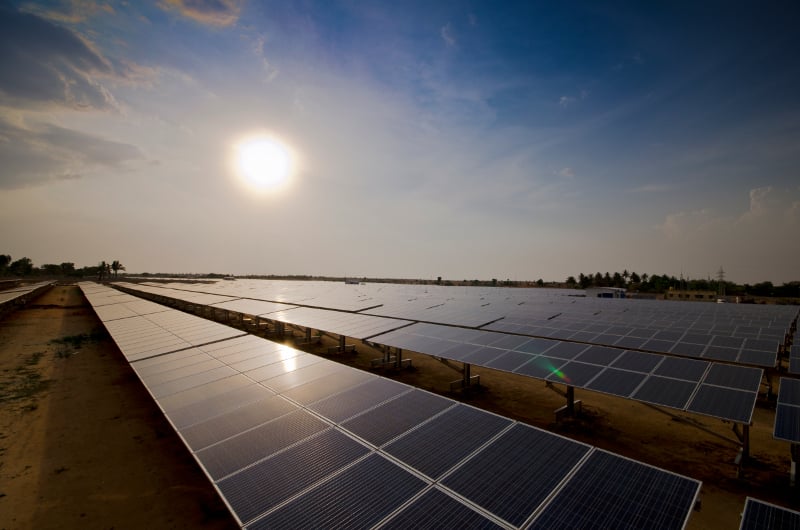
India should put in place immediately a basic customs duty (BCD) of at least 50% on solar equipment to safeguard the future of local manufacturers, the chairman of trade body All India Solar Industries Association (AISIA) said.
Hitesh Doshi called on policymakers to implement the “much-needed” BCD with immediate effect to protect domestic equipment producers.
Try Premium for just $1
- Full premium access for the first month at only $1
- Converts to an annual rate after 30 days unless cancelled
- Cancel anytime during the trial period
Premium Benefits
- Expert industry analysis and interviews
- Digital access to PV Tech Power journal
- Exclusive event discounts
Or get the full Premium subscription right away
Or continue reading this article for free
“The survival of the manufacturers requires the government to look into [the] restructuring of existing policies like [the] implementation of at least 50% basic customs duty,” he said.
That rate is a major step up from the 20% levy proposed by India’s Ministry of New and Renewable Energy earlier this summer – and would be introduced on top of a safeguard duty, which has been extended for another year. Levied on all solar cells and modules imported from China, Thailand and Vietnam, the safeguard duty of 14.9% will be in place until 28 January 2021, when it will reduce to 14.5% until 29 July 2021.
However, Doshi told PV Tech that with the “significant” manufacturing cost difference between China and India, producers in India need further protection. “The safeguard duty is not enough,” he said.
According to AISIA, India imported solar equipment from China last year with a total value of US$1.3 billion. “This shows the potential the sector holds for the domestic manufacturers to contribute to the GDP, should the focus be shifted towards enabling the domestic players,” Doshi added.
AISIA said the recent government decision to provide land near ports to set up manufacturing units marks a “step in the right direction”, but the BCD should be implemented as an “immediate respite”.
The BCD appeal follows warnings last month by Fitch Solutions that a double hit of safeguard and basic customs duties could result in a large number of project cancellations in India, with tariff rates becoming too low to cover project costs, rendering them financially unviable.
The consultancy raised concerns that the imposition of the BCD would be “largely insufficient” in its aim of stimulating domestic manufacturing, given that the country still imports a substantial majority – around 80% – of solar equipment from manufacturers based in Malaysia and China.






